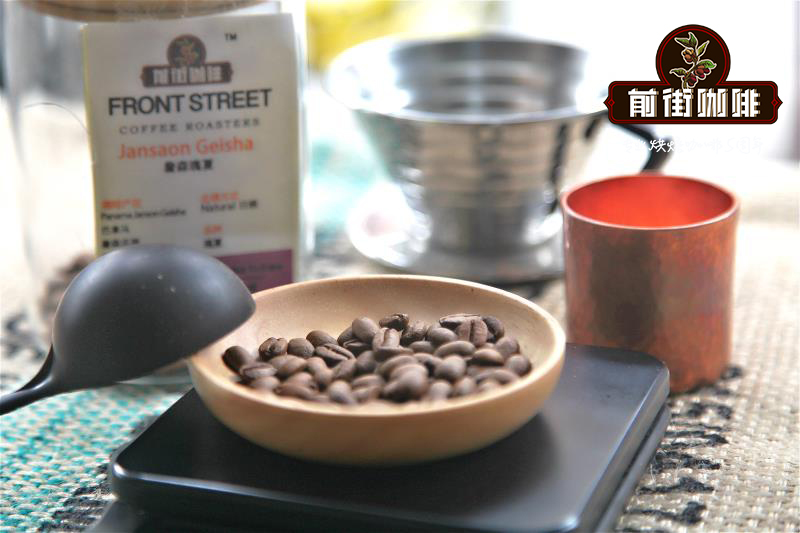Individual Coffee beans recommended | Ethiopian Coffee | Sidamo Guji Bildiimoo

Professional coffee knowledge exchange More coffee bean information Please pay attention to coffee workshop (Weixin Official Accounts cafe_style)
Coffee Bean Recommendation--West Dharma Flower Kui| West Dharma candle
Sidamo Guji Bildiimoo Lot #2
Country: Ethiopia
Location: Sidamo Guji
Category: Grade 1
Treatment method: washed process
Category: Ethiopian Heirloom
altitude: 1900 m
Breeze: Bright citrus acid floral thick fruit juice finish
On the west side of Arsi, in Nensebo, there is a private processing plant- Gora Kone Washing Station, which collects coffee cherries from various small farmers in the surrounding area. Nensebo is a small region in Oromia, Ethiopia. The valleys account for 70 per cent of the area, the remaining areas are drylands and plateaus, and natural drinking water accounts for only 4.6 per cent. Coffee is an important commercial crop, cultivated on more than 5,000 hectares. The total annual output is about 10 containers, five for washing and five for drying. Usually a batch consists of about 150 bags of shelled beans, equivalent to 100 bags of green coffee beans.
About 800 small farmers deliver small quantities of coffee cherries daily to the processing plant. Usually each coffee farmer owns less than one hectare of farmland. Most of the coffee is grown organically, mostly using organic compost. A coffee tree produces no more than 200 grams of green coffee beans, and farmers typically have fewer than 1500 coffee trees per hectare.
Before entering production, farmers manually separate hand-picked coffee fruits into ripe and unripe. After removing the pulp using an Agarde pulper, the pulp is graded by density. The shelled beans then ferment in water for 24 - 48 hours, depending on weather conditions. Through the channel water flow, the different density of shelled beans will be differentiated again. It will be soaked in water for about 12 - 24 hours before being moved to the drying station. The beans will first dry in the shade. Depending on the weather conditions, drying will then take place on African trellises under sunlight for 10 - 12 days. Coffee beans are covered with black mesh at noon and at night.
Qianjie Coffee: Guangzhou's baking shop, small store but a variety of beans, can find a variety of famous beans, but also provide online store services. https://shop104210103.taobao.com
Important Notice :
前街咖啡 FrontStreet Coffee has moved to new addredd:
FrontStreet Coffee Address: 315,Donghua East Road,GuangZhou
Tel:020 38364473
- Prev

What kind of beans do you use for hand-made coffee? Ethiopian Coffee | Sidamo Hill Ameli |
Professional coffee knowledge exchange more coffee bean information please follow the coffee workshop (Wechat official account cafe_style) award record: 2015 Ethiopia National harvesting Monsoon Cup Test Competition (Taste of Harvest) won the third place in the 2014 World Cup brewing competition runner-up very favorite coffee producing area: Sidama province (Guji)
- Next

Salvadoran Coffee | recommendation of individual Coffee beans | Komasa Manor [Black Owl]
Professional coffee knowledge exchange more coffee bean information please follow the coffee workshop (Wechat official account cafe_style) Salvadoran coffee | recommendation of individual coffee beans-- Black Owl El Salvador SHG Borgonovo POHL COMASAGUA Natural Manor: Chateau Comassa: Bourbon Bourbon: SHG production area: adjacent Volc
Related
- Does Rose Summer choose Blue, Green or Red? Detailed explanation of Rose Summer Coffee plots and Classification in Panamanian Jade Manor
- What is the difference between the origin, producing area, processing plant, cooperative and manor of coffee beans?
- How fine does the espresso powder fit? how to grind the espresso?
- Sca coffee roasting degree color card coffee roasting degree 8 roasting color values what do you mean?
- The practice of lattes: how to make lattes at home
- Introduction to Indonesian Fine Coffee beans-- Java Coffee producing area of Indonesian Arabica Coffee
- How much will the flavor of light and medium roasted rose summer be expressed? What baking level is rose summer suitable for?
- Introduction to the characteristics of washing, sun-drying or wet-planing coffee commonly used in Mantenin, Indonesia
- Price characteristics of Arabica Coffee Bean Starbucks introduction to Manning Coffee Bean Taste producing area Variety Manor
- What is the authentic Yega flavor? What are the flavor characteristics of the really excellent Yejasuffi coffee beans?

